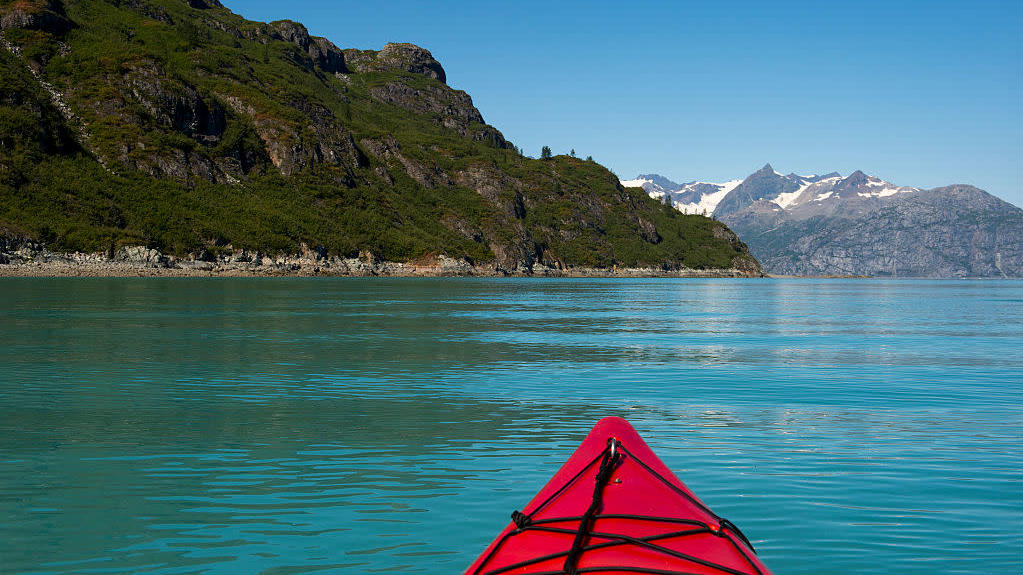How A Remote Alaskan Town Is Getting Its Groceries
Gustavus, Alaska, is about as remote as a 21st-century American town can be, accessible only by air or sea. It didn't have electricity until 1985 and phones until about a decade later. Today, The Hustle reports, it has 446 permanent human residents and many more moose. It's attractive to biologists, nature photographers, and visitors to nearby Glacier Straits National Park, but people can't live on natural beauty alone. They need groceries.
Until a few years ago, Gustavus imported food from Juneau by private plane or barge. Transportation costs more than doubled the cost of basic groceries: a carton of eggs that sold for $5 in Juneau was $12 in Gustavus. Gustavians paid, though The Hustle doesn't say how much they grumbled about it. (A lot, I'm willing to bet.)
A few years ago, though, a young storekeeper decided there had to be a better way. Toshua Parker, a descendent of the town's original settler, moved home from Arizona after losing his real estate business in the Great Recession and started thinking about the grocery problem. He raised $3,000 and then began riding the state-subsidized ferry to Juneau, where he would buy groceries at Costco and resell them at a small markup, just enough to cover the cost of fuel and storage. Gradually, he built an empire: the town gas station, two ships, and the town grocery, officially known as Ice Strait Warehouse and unofficially as Toshco.
Last winter, when the state cut off ferry service to Gustavus and the town dock was closed for four months for repairs, essentially destroying the grocery supply chain, Parker began making the seven-hour barge trip to Juneau every week to stock his store. COVID-19 supply shortages just insured that he continues. He buys $20,000 worth of groceries at a time, mostly staples but also special orders for townspeople, sometimes from other stores. Of course things don't always go as planned, because when do they ever? Still, Toshco is the only game in town, and Parker tries not to take advantage (he's aware that his customers can check the prices at Costco). Every successful return to Gustavus is cause for celebration. "It's like Christmas when the load gets here," Parker said. "Everyone is waiting for it. Word gets out, and they all seem to know when it's coming."
Gustavus is not the only small, remote town that is seeing a new dependence on the local grocery store, although it's one of the few where one person is the entire supply chain. "Small town grocery stores are having kind of a renaissance because of COVID-19," David Procter, a professor at Kansas State University and director of the Rural Grocery Initiative, told The Hustle. "Everyone is stuck at home and buying locally." Local grocery store insure that money circulates back into the local economy; they're also often the only source of fresh and healthy food (aside from farms) and they serve as community gathering centers.
Is there some lesson we can draw from this, or some guidance for the future—besides that buying local is usually a good idea for your community? It's unclear, but the tale of Gustavus and Toshco is a great yarn.
